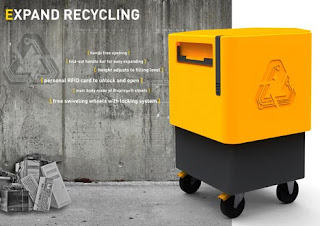
E-waste or electronic waste, has become more than a problem, it is more like an epidemic at this point. With technology moving so fast, our recycling efforts can barely keep up. People are more concerned with what new television set they should purchase, not a recycle how to on old tv's. There are new E-waste companies stepping in every day with more convenient methods of disposal, but none to this point have been better than 4th Bin e-waste disposal.
So maybe some of you are wondering what exactly e-waste is, and how e-waste is bad for our environment. Great question!
Electronic waste (or e-waste) is electronic equipment that is obsolete, or no longer working and includes:
- Televisions and monitors
- Computers
- Printers, scanners, and fax machines
- Stereo equipment
- VCRs, DVD players
- Video cameras
- Telephones
- Cell / wireless phones
- Fax and copy machines
- Video game consoles
Why is e-waste bad for the environment?
- Electronic equipment contains hazardous materials such as lead, mercury and brominated flame retardants.
- Glass monitors and television screens contain about 4 lbs. of lead!
- Circuit boards contain heavy metals that leach out into the environment and affect our public health and natural resources, but when recycled, can help manufacture new electronics.
- 50 million computers and monitors and 130 million cell phones are thrown away each year in the United States. That’s a lot of equipment!
Here is the 4th Bin summary on e-waste disposal from 4thbin.org.
The 4th bin is intended to stand in the common recycling area for apartment and office buildings. The facility manager regularly moves the recycling containers to the curbside and just does the same with the 4th bin when it is full. A transmitter and a sensor in the 4th bin alerts the recycling company when it is moved from the original spot. So the recycling company can customize the pickup routes and work more efficiently.
The whole ECYCLE-system consists of the 4th bin for recyclable electronics and a vehicle for manual collection of reusable electronics.
The expandable 4th bin:
- Takes up only the space that is necessary for it’s content.
- The low starting mode and gradually increasing height of the bin allows a low drop for fragile electronics.
- The expansion gives visual feedback to the facility manager.
- A maximum size bin means it needs to be emptied.
- The RFID locking system ensures that only residents with a valid RFID tag can open the bin.
- A designated person has a special access tag that also unlocks the wheels.
- The main material is Biopregs®, an environmentally friendly biocomposite that can be folded to create the two main parts of the bin.
- Electronics requires gentle emptying in the pickup-vehicle. This is solved with a reusable bag which is lifted out of the bin with a crane and placed carefully in a pallet container on the vehicle.
- The bag is made of a heavy duty fabric with a chemical proof coating.
Green How T0- For more information on 4th Bin please visit 4thbin.org




What a great article! It made me ill to see the life that kids were living dismantling our electronic waste. We need to get a handle on this problem, like YESTERDAY. We can't keep shipping our e-refuse to other countries where they allow kids to be exposed to all the hazardous metals to earn a few cents for their families.
ReplyDeleteI'm posting about this on my site and I hope everyone else will get the word out!